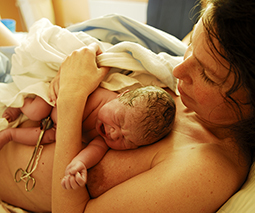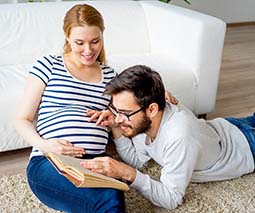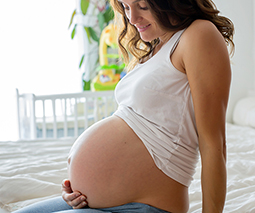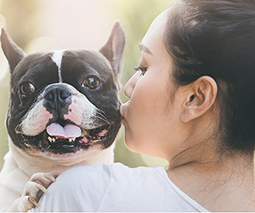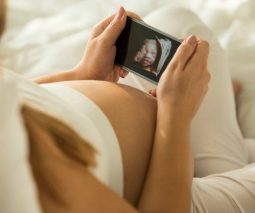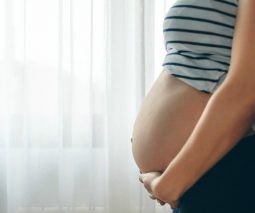“I felt terrified” The struggle of women with eating disorders in pregnancy

For a lot of women pregnancy is a time of joy and anticipation, but for those battling a serious eating disorder while also growing a baby it can feel like a silent prison sentence. Given the somewhat taboo nature of the topic, many women are left to suffer alone and don’t get the help they so desperately need.
A life threatening mental illness
Eating disorders such as anorexia nervosa (restrictive diet behaviour), bulimia nervosa (vomiting after eating), binge eating disorder (over eating) and other conditions such as body dysmorphic disorder, are all very serious psychiatric disorders that can be life threatening. Sadly, they are also often experienced in pregnancy.
According to Christine Morgan, CEO for The Butterfly Foundation; around 4-5 percent of all women in Australia have an eating disorder, with the same figures roughly applying to when they’re pregnant, although because many cases are not reported the statistics are likely to be a lot higher.
Pregnant women in particular are often left feeling misunderstood and isolated by their disorder, leaving them and their baby at risk. “The mortality rate of someone with an eating disorder is high and this is partly because the suicide risk is so very high,” warns Christine. “They’re just so misunderstood, so isolated… it’s just horrible.”
How it happens
Pregnancy itself is generally not a trigger for an eating disorder, it’s usually something that’s been lying dormant or that they’ve been struggling with for some time. In some cases where a woman has had an eating disorder prior to falling pregnant, the fact they are now expecting can actually jolt them into a protection mode for the baby and their eating issues might improve, particularly if they are undergoing treatment. While for others, pregnancy exacerbates the problem and they struggle to deal with the challenges of their disorder on top of their changing size, and shape.
“If you are pregnant and suffering from an eating disorder at a time when optimal nutrition is critical for both the baby and yourself… you’re setting yourself up for a horrific struggle. You’re literally fighting the illness in your head but it’s manifesting itself in behaviours which are potentially quite harmful for yourself and the baby,” says Christine.
“I felt like a monster”
Rachel* recently gave birth to a healthy baby girl but her pregnancy was plagued by a range of eating disorders and mental health conditions. They were so severe she tried to take her own life by overdosing on pain killers and alcohol and then driving her car into a tree.
“I had reached the point where I couldn’t stand being me, living in my body, looking how I did any more. I was desperate to not live anymore but trying so hard to keep it all together for my baby,” says Rachel. “I felt so desperate and alone. I felt guilty, selfish, revolting. I felt like a monster.”
Rachel suffered from an eating disorder during high school and developed postnatal depression with her previous pregnancies, but this time around it was much, much worse. With a naturally high BMI, she was told by doctors early on to not put on any extra weight for the health of her baby. Despite keeping to a strict 1,600 calorie a day diet, walking daily and doing crossfit three times a week her weight continued to increase. It paved the way for a crippling eating disorder that saw her secretly throwing up food after eating, refusing to eat, intense self loathing and actions that put herself and her baby’s life at risk.
“I felt terrified, anxious and angry”
Patricia* also struggled with various eating disorders throughout her teens, a result of a dysfunctional family environment where she was made to feel stupid, fat and unlovable. Being restrictive about her weight gave her control. So when she became pregnant and was faced with losing her thin and fit figure – the one thing that made her valuable – it was frightening. But it wasn’t until after she gave birth that she could see how sick she really was.
“I felt terrified, anxious and angry at everyone who was trying to help me, and to be honest completely confused about what the fuss was about – I thought I looked totally normal!” says Patricia. “I can’t even look at photos of myself the day my baby was born, it terrifies me that I allowed myself to get so sick when I had such an important job to do. I hate thinking about the worry and concern my friends and husband must have gone through. I really hated myself post having the baby and still do to a certain extent.”
The health system is failing
According to Christine, the problem is that health professionals – including specialists such as obstetricians – don’t have to study eating disorders and therefore have very little understanding about the signs and how to treat them. They simply fall through the cracks, undiagnosed.
“If an underweight pregnant women is eating very little then the nutrients will go to the baby, thank goodness, but the impact on [the mother] might be quite impaired,” something Christine believes often gets neglected. As long as the baby appears to be growing, the mum can be left without treatment.
For those who are overweight and grappling with binging disorders, the signs are even harder to pick up.
“You’re not going to be able to pick it up from body shape and size; and if anything they might feel challenged about the weight that they’re carrying which exacerbates a condition like this in the first place,” says Christine.
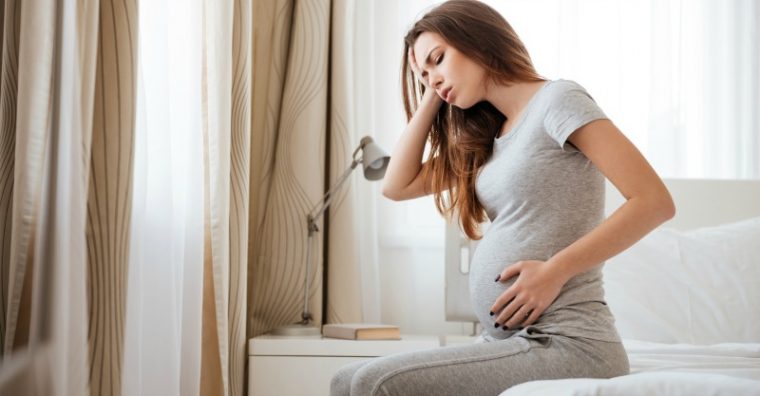
A lack of concern for the mother
Rachel consistently tried to reach out to doctors for help throughout her pregnancy but found herself ignored and disbelieved, despite them having a record of her prior mental health issues. Patricia also experienced a lack of concern from doctors.
“During my pregnancy the eating disorder wasn’t addressed but I was diagnosed with perinatal depression/anxiety and prescribed anti-depressants,” says Patricia. “It strikes me as odd that my doctor or the therapist I saw during that time were not talking to me about having an ‘eating disorder’ and because they didn’t I almost had more ammunition to refute what my friends and family were saying – I was anxious yes – eating disorder – no way!”
“I wish my doctor had sat me down and told me what I was doing and that how I looked wasn’t normal. It could have hurt my baby and destroyed my relationships,” she adds.
How it can be improved
Mandatory screening for eating disorders during pregnancy and post-birth is something Christine believes would truly help at-risk women. Especially given that one of the times women are most at risk of developing an eating disorder is post pregnancy.
“Knowing that it’s a heightened risk time, it’s particularly important that we help and monitor women who have given birth so they’re not feeling pressured in such a way that tips them into an eating disorder if they’ve got that vulnerability,” she says.
Seeking help
The most dangerous thing a pregnant woman with an eating disorder can do is to try and manage it on their own, says Christine. If they aren’t getting support from doctors then they should reach out to organisations like The Butterfly Foundation and their helpline. Treatment for women with an eating disorder is a long road and involves medical monitoring, psychotherapy and dietician advice.
The warning signs
When it comes to partners, family members or friends, the best thing they can do is not ignore their instincts. Ring a helpline for advice.
Pregnant women with anorexia nervosa will look visibly underweight but sometimes eating disorders are much harder to detect, particularly if a woman has a high BMI or is hiding behind morning sickness symptoms. Other signs include:
- A preoccupation with weight, shape and body size – which can be exacerbated by all the body changes happening during pregnancy
- Avoidance of eating with other people – they will withdraw socially from eating situations and might say they’ve already eaten or are not hungry
- Mood swings – when you deprive yourself nutritionally it affects you psychologically and emotionally
- Avoidance of food in general
Giving hope to others
Rachel is currently receiving treatment for her conditions and wants to encourage others to keep reaching out for help.
“Be honest and be brave. It’s so hard to reach out but it’s not as painful as living with these illnesses,” says Rachel. “I’m not where I want to be, or should be health wise… but now at least I’m getting the support that will help me recover.”
Patricia’s second baby is due next month, this pregnancy and her health are going much better thanks to an obstetrician who specialises in eating disorders.
“If you’re starting to get overly obsessed by your body image during pregnancy – talk to someone. You are doing the most amazing thing in the world, growing a human inside of you – but it’s okay to say, ‘I don’t like being pregnant, I don’t like what it does to my body, I feel unattractive,'”says Patricia. “I wish anyone going through this love, empathy and understanding, it is scary and stays with you for a long time.”
If you are suffering from an eating disorder or mental health issues, please contact The Butterfly Foundation on 1800 33 4673, or PANDA on 1300 726 306
* Names have been changed for privacy reasons.
